PCOS, or polycystic ovary syndrome, affects women in their childbearing years
PCOS is a syndrome that can affect teens and women of reproductive age. Polycystic ovary syndrome is due to a hormonal imbalance that causes a woman’s body to produce too many androgens. This is a type of hormone that typically appears in higher levels in men than women. Women with high androgen levels can experience problems that affect menstruation and fertility as well as have other symptoms. Women can rely on the experienced physicians at Athens ObGyn for an accurate diagnosis and effective treatment.
What are the causes of PCOS?
Researchers and physicians aren’t certain what causes this syndrome. Some people believe environmental or genetic factors are the cause. Researchers have also found a link to PCOS and elevated insulin levels, as many women who have the syndrome are insulin-resistant. We also know that polycystic ovary syndrome increases a woman’s risk of developing high blood pressure, diabetes, high cholesterol, anxiety, depression and sleep apnea. Having a family member with the syndrome can increase a woman’s risk.
How do women know if they have polycystic ovary syndrome?
Every woman’s presentation of this syndrome is unique. However, the following symptoms are commonly associated with it.
- Infrequent or irregular periods or a lack of periods
- Multiple tiny cysts on the ovaries
- Increased hair growth on the stomach, back, face, chest, toes or thumbs
- Hair loss
- Acne
- Obesity and/or weight gain
- Pelvic pain
- Dark brown or black thickened patches of skin
- Fertility problems
The varying symptoms of PCOS can make it difficult to diagnose the condition. Our physicians use several tools to identify the condition in patients. The diagnostic process begins with a physical exam and a pelvic exam. Other helpful tests include ultrasounds and blood tests to check hormone levels, cholesterol and insulin levels. A patient with polycystic ovary syndrome will have at least two of the following signs.
- Elevated androgen levels
- Irregular or absent menstruation
- Multiple ovarian cysts
How do doctors treat this condition?
Although there isn’t a cure for polycystic ovary syndrome, there are ways to treat and manage the condition. Treatments include medications and lifestyle modifications like the ones below.
- Birth control pills help with irregular periods, unwanted hair growth and acne
- Metformin can help with insulin-resistance and ovulation issues.
- Lifestyle changes can also be beneficial. A prime example is losing weight through diet and exercise.
This condition can be frustrating for women, but the physicians at Athens ObGyn offer hope and healing. Contact us for an appointment.
